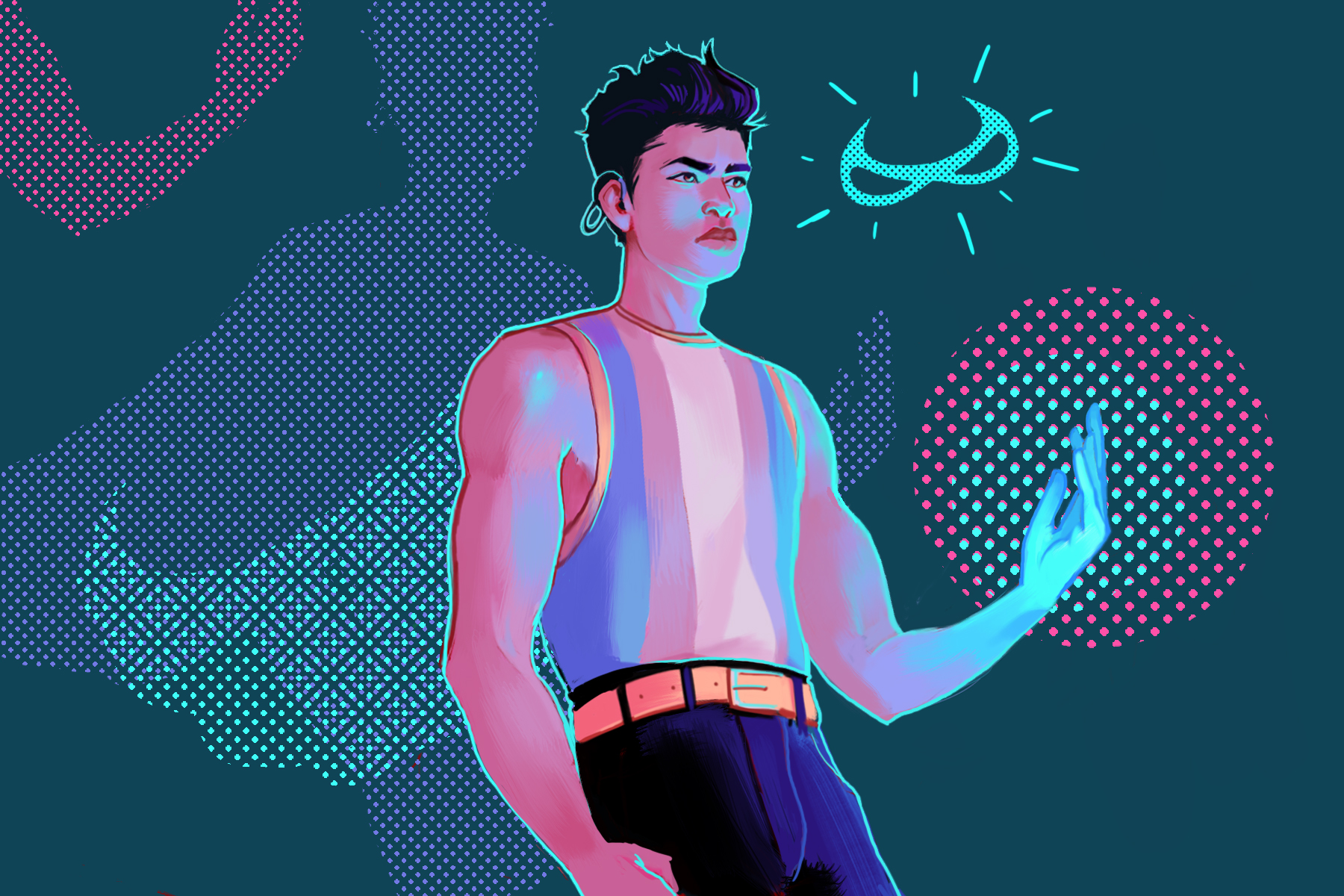Stirring up controversy amongst internet fanatics, the DC show “Titans” took the lead in minority representation in the television industry when casting dark-skinned actress Anna Diop as the fiery redheaded alien Koriand’r (Starfire). Recently, DC revealed further casting news regarding a new Titan, named Jericho, expected to debut in Season 2 of “Titans.” Jericho, a mute bisexual hero, will be played by up-and-coming actor, Chella Man.
Man — a deaf, transgender, Jewish person of color (POC) — publicly announced the news on Twitter, writing that “the power in his differences” could now reach a broader audience. Subsequently, those within the LGBTQ+, disabled and POC communities responded with utter admiration. This rare piece of representation acted as a beacon of hope for them in their fight to be seen and reliably portrayed.
SECRET’S OUT!
It is UNREAL to announce I will be making my acting debut as Jericho on Season 2 Titans!
As a trans, Deaf, Jewish POC, I have always reminded myself of the power in my differences.
It’s a dream come true as I will now be able to showcase this power on the Titans. pic.twitter.com/9Lq47dYr0L
— CHELLA MAN (@chellamanart) March 19, 2019
Hollywood and the television industry have a reputation of miscasting numerous roles, where a minority character is inexplicably played by a white actor. The reprisals for these miscasting decisions have been nonexistent. On the contrary, with the announcement of Man’s casting as Jericho, the internet was quick to offer its opinion.
One Twitter user questioned whether Jericho was truly deaf and transgender in the comics, alluding to the sudden importance for characters to be rightfully represented. Another responder declared the inclusion of Man’s “transgender sexuality” in the headline was superfluous considering it is “unrelated to the character’s identity.” (Note: Transgender is not a sexuality.)
Jericho is a relatively unknown character within the DC Universe. Most people are unaware of his mute bisexual identity, which explains the hypercritical responses regarding the casting decision.
Despite the negative reactions to the news, Man’s casting is an enlightening victory for people with disabilities.
It’s hypocritical for TV and movie producers to cast able-bodied actors and actresses for roles in which disability awareness is a primary goal. It negates awareness of disabilities when disabled characters cannot even be rightfully represented. Even for roles in which a disability is pertinent to a character’s identity, directors still opt for an able-bodied actor. It is nonsensical to hire someone with imaginary experience with a disability and expect them to be believable.
When Hollywood and television avoid including disabled people in projects centered around a story of disability, they frequently mis-portray the experience. This is dangerous to viewers ignorant of the experiences of the disabled, because it initiates a stereotypical culture associated with that disability.
Consumers of media begin to assume a disability, such as deafness, can be defined by arbitrary components X, Y, Z, when this is not applicable to everyone. Falling into a misappropriation of disabilities is easily avoidable with the correct portrayal by a disabled actor.
However, the responsibility falls onto the actors as well. Non-marginalized actors who accept a role of a marginalized character display their insensitivity about the progression of minority representation in media. This compliance is disrespectful to marginalized fellow actors, because they refuse to reserve those (few) roles for those who can best represent them.
To put it bluntly, actors with disabilities can liven a character with equal eloquence and creativity.
Chella Man has been vocal on his social media platforms regarding his experience growing up deaf. Maintaining an admiringly positive outlook on his deafness, Man is grateful his disability grants a distinct perspective of the world. He enjoys experiencing his environment through alternate, heightened senses and chooses to see an adjusted form of beauty through tangible and everyday experiences.
The trans actor is never angry at his deafness, his dependence on his hand gestures for communication or his cochlear implants. His deafness taught him early on to take pride in being different and to welcome change. Because of this, he is resilient.
Chella Man is the honest and optimistic role model that deaf kids need. He exemplifies boundless dreams to those constantly told they are incapable.
It is difficult to be a kid of marginalized identity in this society. These kids already feel isolated simply from predispositions established through ignorance. But by finally having someone in the media — especially a superhero — that these kids can relate to, they begin to believe there is a place in the world for them. That they are seen.
Although Jericho is mute and communicates via American Sign Language, his character is not wholly outlined by his disability. Media adaptations involving a disabled character often tend to restrict said character’s potential by reducing their complexity down to the label of disabled.
Understandably, the limitation of disabled characters in entertainment can make disabled viewers feel like that’s all they are to society. Following the introduction of a character such as Jericho into a mainstream media franchise, viewers of varying abilities begin to understand that power and disability status are not mutually exclusive.
Jericho, much like Chella Man, is kind-hearted. His upbringing is dysfunctional to say the least. He is the son of the infamous DC villain Deathstroke, and his muteness is attributed to assassins severing his vocal cords in retribution for his father’s mistakes. These villainous connections may lead viewers to assume Jericho would presumably follow in his father’s footsteps, but he stridently aims to do the opposite by carving out a name for himself as a hero.
Possessing the superhuman power to take control of anyone through direct eye contact, Jericho initiated the beginning of his superhero career when assisting Dick Grayson (Robin) in rescuing the Titans, who had been kidnapped by Deathstroke.
Conclusively, Jericho’s backstory is complex, fabricated through unexpected reactions given his gruesome encounters. Nevertheless, he is never belittled as a kid who is just mute. Of course, his circumstances are unfortunate, but he’s remarkable because he prevails despite them.
DC and Man’s approach to Jericho’s character proves to everyone that disabilities are not a limit, but instead inspire growth.
Actors who are deaf or hard-of-hearing bring weight to a disabled character that frequently cannot be reached with an actor who lacks the emotional and physical experience. Deaf people live a life all-encompassing to who they are. They experience the world in a way that cannot be easily mimicked by anyone, and they know exactly how to educate audiences about the potential in their community.
Man’s casting as Jericho guarantees a fresh perspective on media portrayals of disabilities, while also bringing life to a character, who has all odds against him yet refuses to be weighed down.
A gracious and dedicated creation, Jericho is for those whose hands are their voice and whose identity, an innate heartbeat, is finally seen.
















